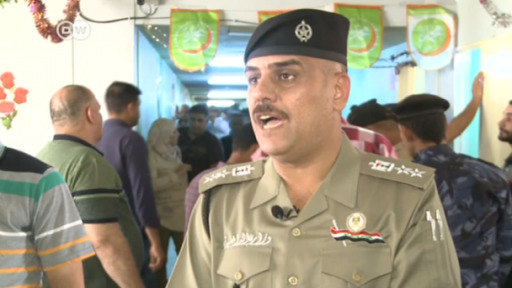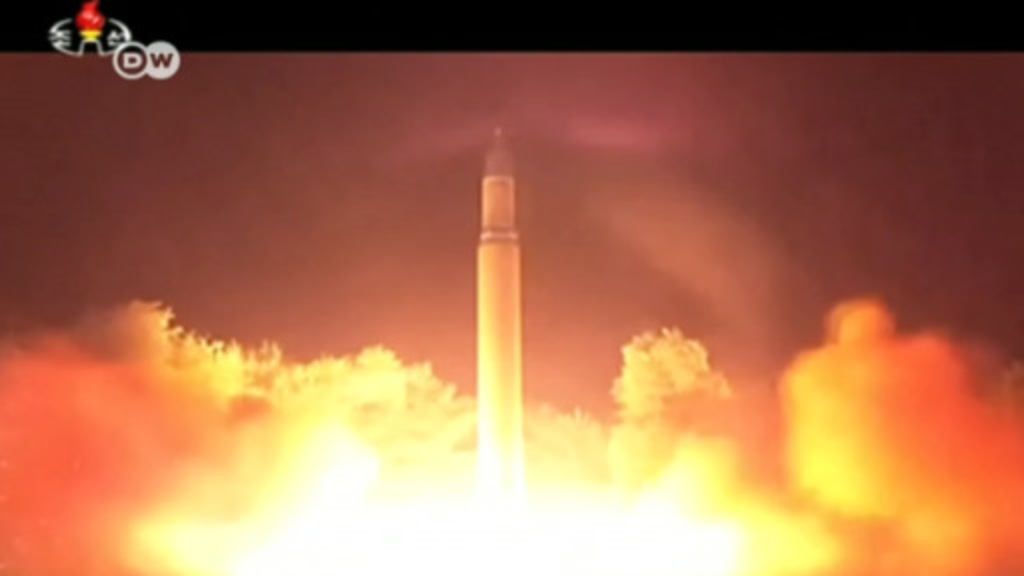News
Iraq votes in first elections since victory over IS
Iraqis are voting electronically to elect lawmakers for 329 parliamentary seats. There is no clear front-runner as Prime Minister Haider al-Abadi faces stiff competition from his predecessor.
Polls opened across Iraq on Saturday in the first parliamentary elections since the government declared victory over the "Islamic State" (IS) militant group late last year.
The elections take place as Iraq struggles to rebuild itself after nearly four years of war with IS that has reduced several of its cities to rubble.
Read more: Iraq election: Unlikely candidate emerges as face of the youth
Iraq polls: At a glance
- About 7,000 candidates from dozens of political alliances are vying for 329 parliamentary seats.
- The vote is being conducted electronically for the first time in an effort to reduce fraud.
- The results are expected within 48 hours of polling offices closing.
- Prime Minister Haider al-Abadi faces stiff competition from political parties with closer ties to Iran.
- Abadi's most powerful opponents are his predecessor, Nouri al-Maliki, and the "Fatah" alliance — Arabic for "Conquest" — headed by Hadi al-Amiri, a former transport minister and commander of the Shiite Badr force, closely linked to Iran.
Read more: The Iraq War: In the beginning was the lie
'I will mark an 'X' on my ballot'
Jamal Mowasawi, a 61-year-old butcher, said: "I will participate but I will mark an 'X' on my ballot. There is no security, no jobs, no services. Candidates are just looking to line their pockets, not to help people."
Hazem al-Hassan, a 50-year-old fishmonger in Baghdad said: "It's the same faces and same programs. Abadi is the best of the worst; at least under his rule we had the liberation (from IS)."
Fifty-eight-year-old Jassim Mohsen, who fought against IS with the paramilitary forces, said he's casting his vote for the Fatah alliance because of their personal sacrifices.
"I elected the Fatah list because they are the only ones who fought Daesh and gave blood," he said, referring to IS by the Arabic acronym for the militant group.
Read more: The legacy of the 'Islamic State'
Key issues: The defeat of IS has brought insurgent-style attacks across Iraq but the country continues to struggle with an economic downturn sparked in part by a drop in global oil prices, corruption, sectarian divisions and years of instability.
Lengthy talks: Negotiations to form a government are likely to drag on for months as dozens of political parties attempt to stitch together a coalition large enough to hold a majority of seats in parliament.
ap/jm (AP, Reuters)
DW recommends
WWW links
Audios and videos on the topic
- Date 12.05.2018
- Homepage DW News -
- Related Subjects Iraq
- Keywords Iraq, Islamic State, Baghdad, Iraq elections
- Feedback: Send us your feedback.
- Print Print this page
- Permalink http://p.dw.com/p/2xZJM
- Date 12.05.2018
- Homepage DW News -
- All videos DW News
- All videos in Media Center
- Related Subjects Iraq
- Keywords Iraq, Islamic State, Baghdad, Iraq elections
- Send us your feedback.
- Print Print this page
- Permalink http://p.dw.com/p/2xZJM
















